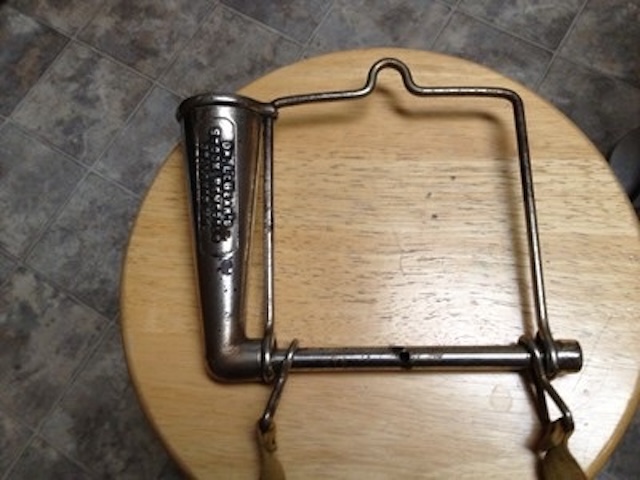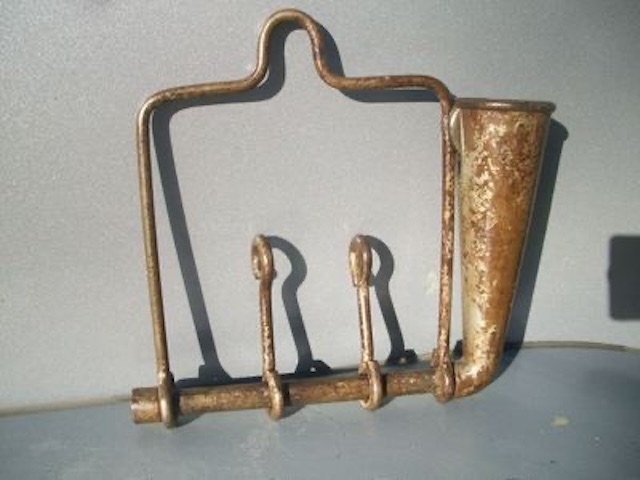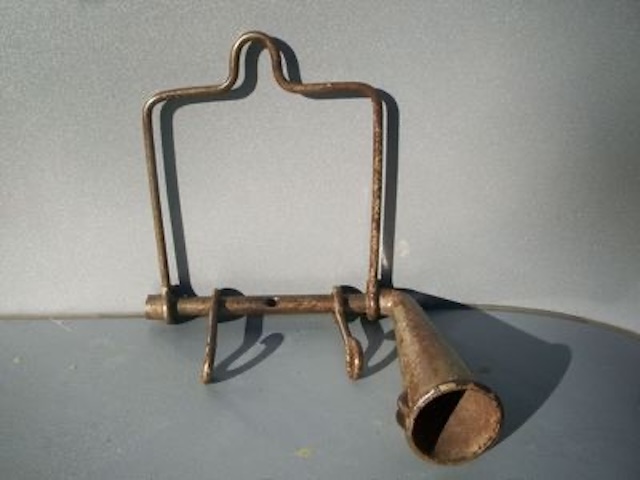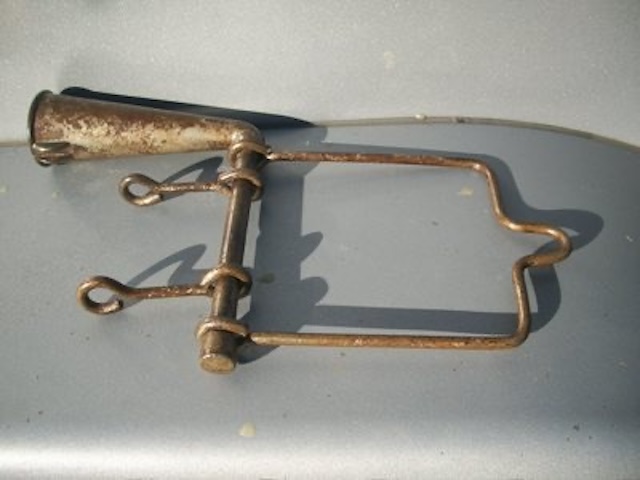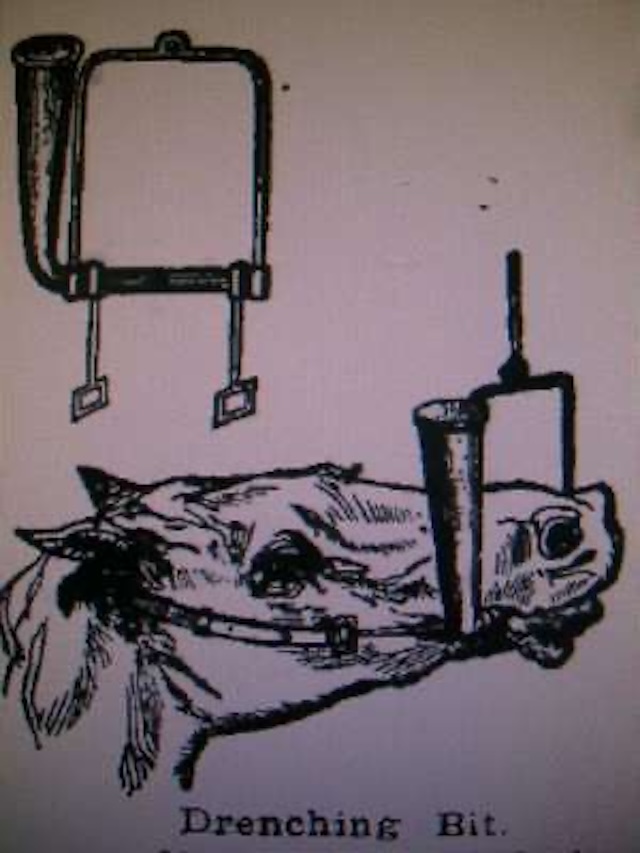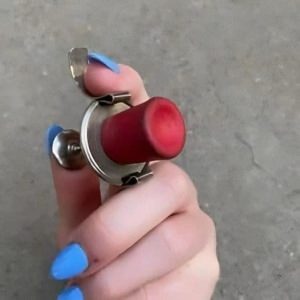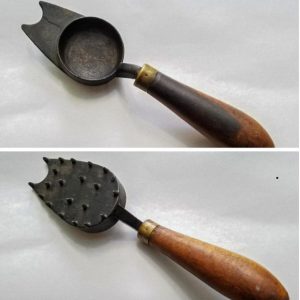Introduction: Exploring the Drenching Bit’s Historical Significance
Before the advent of modern veterinary medicine, caring for large animals such as horses required a blend of ingenuity and specialized tools. One such tool, now largely forgotten, is the drenching bit. This device, once commonly found in old barns and rural veterinary kits, was essential for administering liquid medicines safely and effectively. Let’s delve into the history of the drenching bit, its functionality, and its pivotal role in early animal care.
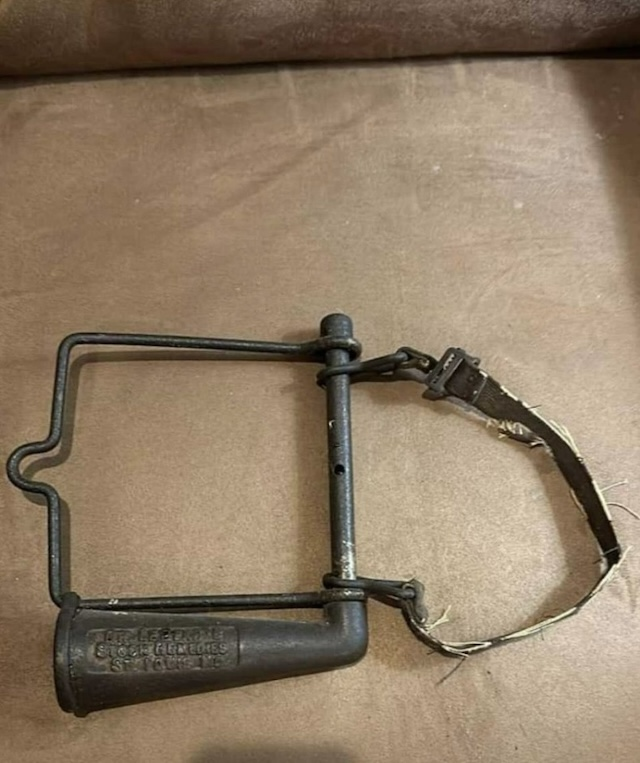
A Glimpse into Historical Animal Care
In the days before advanced veterinary treatments, managing the health of large animals like horses was no small feat. Horses were crucial for transportation, agriculture, and even warfare during the 19th and early 20th centuries. With veterinarians often located far from rural areas, farmers and horse owners had to rely on practical solutions for animal care.
Administering medicine to a large, strong animal like a horse presented significant challenges. The drenching bit was developed as a practical solution to the problem of delivering liquid medications. This simple yet effective device helped ensure that horses received the necessary treatments, despite the difficulties of managing such a large animal.
What Is a Drenching Bit?
The drenching bit is a straightforward but ingenious tool used for administering liquid medicine to horses. It consists of a metal bit designed to be placed in the horse’s mouth, connected to a tube or funnel for pouring the medicine. A strap would secure the bit around the horse’s head, preventing it from spitting out the medication or resisting the treatment.
This device allowed for the controlled delivery of liquid medicines, making it possible to treat horses with large doses of medication efficiently. The drenching bit was particularly useful for administering remedies for ailments like colic, dehydration, or poisoning, where liquid treatment was often necessary.
The Historical Role of the Drenching Bit
The drenching bit became a vital tool in the 19th and early 20th centuries. During this time, horses played a central role in daily life, from farming to transportation. Keeping these animals healthy was essential, and the drenching bit was a key instrument in achieving this.
Before the rise of specialized veterinary clinics, many farmers and horse owners had to handle their own animal care. The drenching bit allowed them to administer liquid medicine effectively, bridging the gap between traditional methods and the evolving field of veterinary science. Its design helped ensure that treatment was both safe and efficient, minimizing the risk of spillage and injury.
How the Drenching Bit Functioned
The operation of the drenching bit is deceptively simple. The metal bit is placed in the horse’s mouth, much like a standard bridle bit. Once in position, a tube or funnel is attached to the bit, allowing the handler to pour liquid medication directly into the horse’s throat.
The bit’s design ensured that the horse’s mouth stayed open and its throat remained properly aligned, facilitating the smooth passage of the medicine. The strap around the horse’s head kept the bit securely in place, preventing the animal from shaking it off or rejecting the treatment. This method proved particularly useful for delivering large volumes of liquid medicine quickly and effectively.
The Evolution of Veterinary Tools
As veterinary medicine advanced, so did the tools used for animal care. Innovations such as syringes and drench guns began to replace the drenching bit, offering quicker and more efficient methods for administering medication. Modern advancements have streamlined the process, reducing the need for manual tools like the drenching bit.
Despite these advancements, the drenching bit remains a significant symbol of early veterinary practices. It reflects the resourcefulness and creativity of those who cared for animals before the era of sophisticated medical equipment. Collectors and historians value vintage veterinary tools like the drenching bit for their historical and practical significance.
Conclusion: The Lasting Legacy of the Drenching Bit
While the drenching bit may seem like an outdated relic in today’s high-tech world, its impact on veterinary medicine was profound. This tool played a crucial role in the care of horses during a time when modern medical treatments were not readily available. It stands as a testament to the ingenuity and dedication of those who managed animal health with the resources at hand.
Today, the drenching bit serves as a reminder of the evolution of veterinary care and the vital role that practical tools played in animal husbandry. As we reflect on the progress made in veterinary science, it’s important to appreciate the history and significance of tools like the drenching bit.
